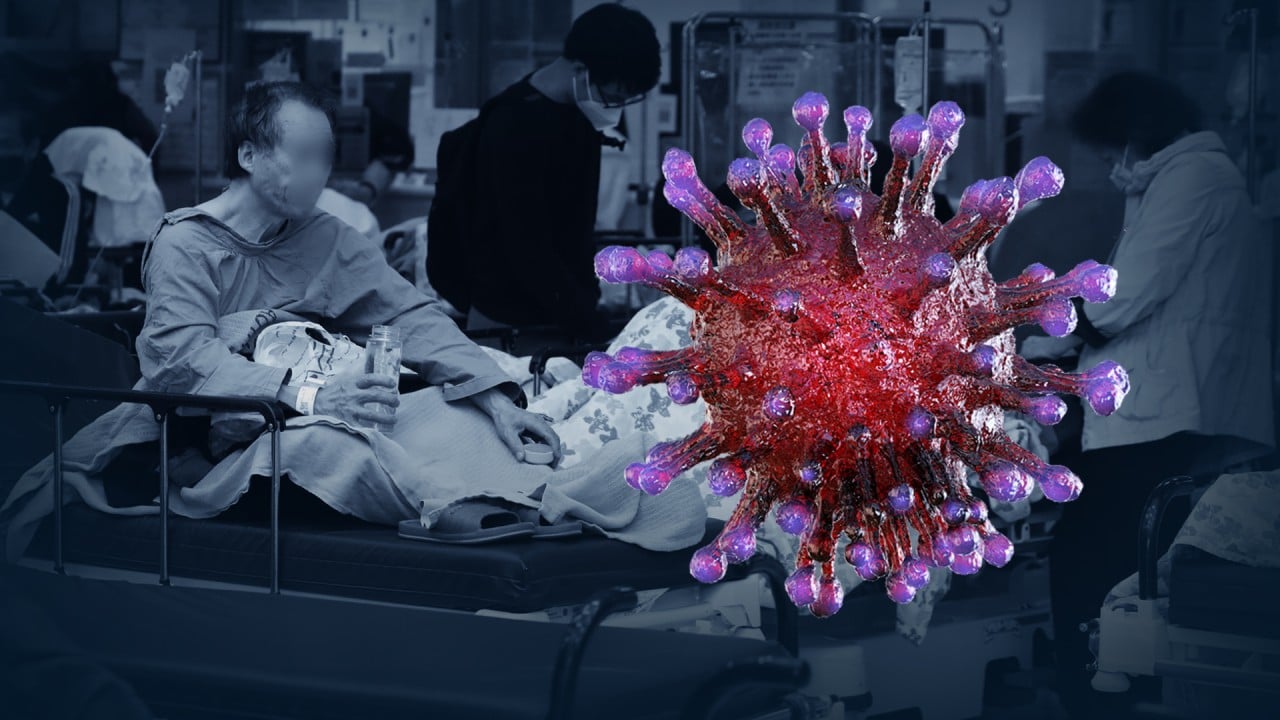
China’s daily Covid-19 cases hit numbers not seen since 2020
- More than 1,000 locally acquired coronavirus cases surpass tallies seen in early days of outbreak two years ago
- Spike driven by asymptomatic infections as more transmissible Omicron variant spreads
Another 397 locally transmitted cases displayed symptoms. The Chinese health authority only classifies symptomatic cases as confirmed.
In all, 221 new asymptomatic infections were reported for Qingdao, more than twice the 103 symptomatic cases. The outbreak centred on the county-level administrative division of Laixi, where a surge in asymptomatic cases was caused by the Omicron variant, which is more transmissible but causes less severe symptoms than the original Covid-19 virus.
“The Laixi city party committee and city government did not have satisfactory political awareness,” the disciplinary commission said.
“Their work ethic was not down to earth and they did not strictly implement protocols. Their flexibility and determination in sustaining epidemic control were found lacking.”
The principal and vice-principal of a middle school in Laixi were also fired after many pupils became infected.
Changchun, the capital of China’s northeastern Jilin province, announced that schools and all shops except supermarkets and pharmacies would be closed.
The city of 9 million recorded 23 new cases, but it borders Jilin city, where more than 200 people tested positive for the coronavirus the same day.
Bus, taxi and metro services in Changchun were also suspended in a bid to cut transmission chains, while residents were told to undergo a second round of mass testing.
“The infection has spread widely in many regions,” Zhang Yan, deputy director of the provincial health commission, said. “There are community outbreaks in Jilin city, and Jiutai district of Changchun city, and there will be a rapid rise in case numbers.”

In southern Guangdong province, all 557,000 residents of Dalang town in Dongguan city queued up at testing stations for their 10th round of mass screening in the current wave of infections.
Meanwhile, in a break from long-held policy, the National Health Commission announced on Friday that it had incorporated rapid antigen tests into its infection control regime.
“In accordance with the needs of epidemic control, the State Council Joint Prevention and Control Mechanism’s comprehensive team has researched and decided to promote the monitoring method of using antigen tests for screening and nucleic acid tests for diagnosis,” the commission said in a statement.
Antigen tests would allow Covid-19 infections to be discovered sooner, and also equip clinics in villages and towns that are unable to administer nucleic acid tests with the means to identify cases, it said.
Rapid test kits serve as another weapon in fight against the virus
China has described its efforts to clamp down on the coronavirus as “normalisation of epidemic control”.
“Our prevention and control measures will be based on the development of the pandemic and changes to the virus,” Li told a press conference closing the annual “two sessions” national legislative gathering, expected to be his last as premier.
China already had “green corridors” in place to ensure core commercial projects could carry on operating, he added.
There were no new Covid-19 fatalities in China reported on Friday, leaving the death toll unchanged at 4,636. As of March 10, the country had confirmed 112,940 cases.


